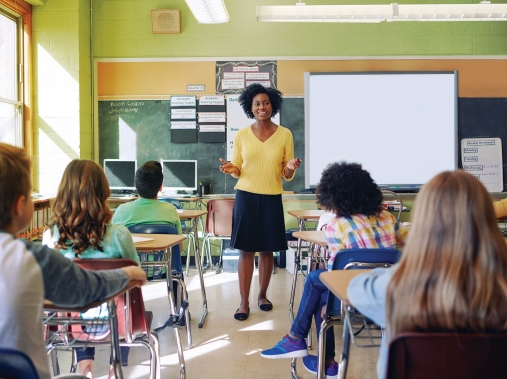|
|
RAND research and commentary on the issues that matter most
|
Oct 15, 2020
|
|
|
|
|
Design by RAND Corporation
|
|
|
|
Russian propaganda on social media is generating strong partisan reactions that may intensify political divisions among Americans. However, Facebook users are less apt to hit the “like” button if they learn that a post is part of a foreign campaign.
These are the key takeaways from our latest study of online election interference. In a randomized controlled trial of more than 1,500 Facebook users, RAND researchers tested memes that Russia actually used in 2016, and then explored whether a media literacy video or a label that identified the source of the meme could help prevent the spread of propaganda.
Notably, participants who fell into partisan groups on both the left and the right reacted in the strongest and most partisan ways. But people in these groups were also the most likely to change their minds about liking a meme if it was revealed to have come from Russia. Read more »
|

|
|
People line up to cast their ballots during the early voting period in Cincinnati, Ohio, October 6, 2020. Photo by Megan Jelinger/Reuters
|
|
The alleged plots to kidnap the governors of Michigan and Virginia underscore the possibility of domestic terrorism this election season. According to RAND's Brian Michael Jenkins, the likelihood and nature of any political violence depends on several variables, including how obvious the election outcome is and how soon we know it. And while a tranquil election is unlikely, America's future “depends more on the good sense of its people than of its political leadership,” he says.
Read more »
|
|

|
|
Photo by Nemer-T/Getty Images
|
|
Colleges have long had insufficient resources to meet students' mental health needs. And now, the pandemic has likely made things worse. But according to RAND's Lisa Sontag-Padilla, there are ways for colleges to help struggling students. For example, they could expand remote therapy, engage with crisis centers, and focus on reducing the stigma around mental health issues. This challenging time could be an opportunity to invest in solutions that help students well beyond COVID-19.
Read more »
|
|

|
|
Photo by xijian/Getty Images
|
|
Maintaining and protecting the U.S. electric grid is expensive. That's why utility companies have reduced redundancies in infrastructure, minimized staff overhead, and streamlined supply chains. But according to RAND experts, recent disasters—wildfires, hurricanes, and the pandemic—have stretched the grid to a breaking point. It may be time to consider increasing redundancies, staff, and supplies, especially as climate change continues to intensify natural hazards. This would be more costly, but safety and resilience may be more important than “running lean.”
Read more »
|
|

|
|
Photo by FatCamera/Getty Images
|
|
Research has shown that social and emotional learning can improve student well-being, social behavior, and academic achievement. More than ever, schools are embracing SEL, but what do teachers think? Results from a new RAND survey show that most teachers have confidence in their ability to improve students' social and emotional skills. But they also identified some challenges. For example, teachers who reported higher levels of their own well-being engaged in SEL practices more than those who reported lower well-being.
Read more »
|
|

|
|
Army Maj. Gen. Pete Johnson and his foreign counterparts in Phitsanulok Province, Thailand, Feb. 25, 2020. Photo by Army Pfc. Lawrence Broadnax/U.S. Dept. of Defense
|
|
What role should allies and partners play in U.S. national security? What share of defense costs should be covered by America's allies? Should Washington work with allies on technological plans? RAND's Christine Wormuth provided insights into these questions and more in a recent congressional testimony. Overall, she says the bipartisan tradition of valuing alliances and partnerships should continue: “It made sense in the past, and it makes sense going forward.”
Watch the video »
|
|
|
You already get the latest insights from RAND in your inbox. Why not your earbuds?
Policy Currents is available as a weekly podcast. Five minutes, every Friday.
Subscribe now »
|
|
|
|
|